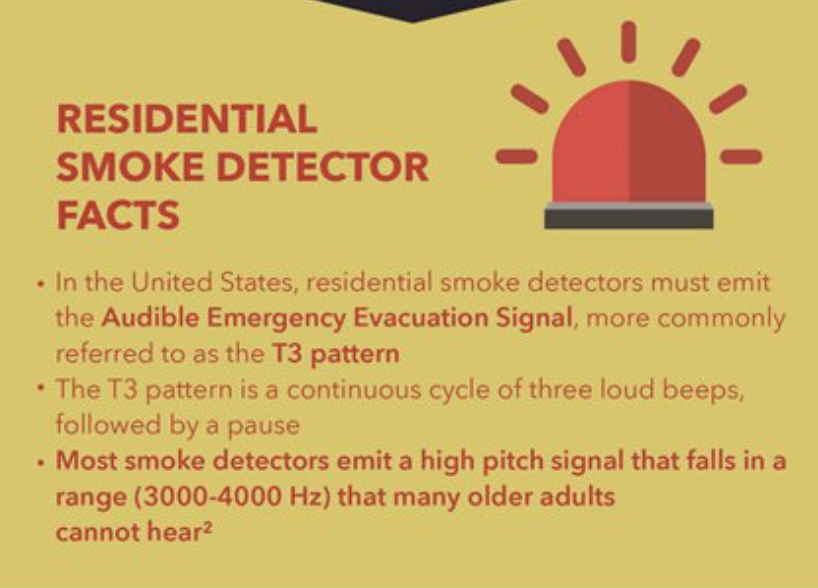Smoke detectors are essential for protecting your home and family from fire hazards. But what if you or someone you live with is deaf or hard of hearing? Standard smoke alarms that rely on loud beeps may not be sufficient to wake you in an emergency.
The good news is there are a variety of smoke detector options available to ensure everyone has a chance to escape a fire. Here’s why smoke detectors are so important for the hearing impaired and what products can provide the best protection:
Why Standard Smoke Alarms Aren’t Enough
- Delayed Escape: Fires can grow and spread rapidly. Precious seconds lost due to not hearing the alarm can mean the difference between escape and tragedy.
- Disrupted Sleep: Many people remove hearing aids or cochlear implants while sleeping. Without these devices, a standard smoke alarm may not be loud enough to wake them.
Essential Features for Deaf and Hard of Hearing Residents
- Visual Alarms: Bright strobe lights that flash rapidly can effectively alert people to danger, even during sleep.
- Vibrating Alarms: Placing a vibrating pad under your pillow can provide a tactile warning, ensuring you feel the vibrations.
- Bed Shakers: These devices shake the bed rhythmically to wake occupants in case of a fire.
Choosing the Right Smoke Detector
- Smoke Detector Type: There are two main types of smoke detectors: photoelectric and ionization. Photoelectric alarms are generally better for detecting slow-burning fires, while ionization alarms are better for detecting fast-burning fires.
- Combination Alarms: You can find smoke detectors that combine features like strobe lights, vibration, and a loud alarm for maximum safety.
- Interconnected Systems: Consider a system where all the smoke detectors in your home are interconnected. When one alarm goes off, they all go off, ensuring everyone hears (or feels) the warning regardless of location in the house.
Additional Safety Tips
- Test Monthly: Test your smoke detectors monthly and replace batteries according to the manufacturer’s instructions.
- Practice Escape Plans: Create a fire escape plan with your family and practice it regularly. Include escape routes and designate a meeting place outside the home.
- Invest in Fire Extinguishers: Having a fire extinguisher readily available can help you control a small fire before it grows out of control.
By installing the right smoke detectors and practicing fire safety habits, you can ensure everyone in your home has the best chance of escaping a fire safely. You can find smoke detectors and other accessories for the hearing impaired in the CEH store.


